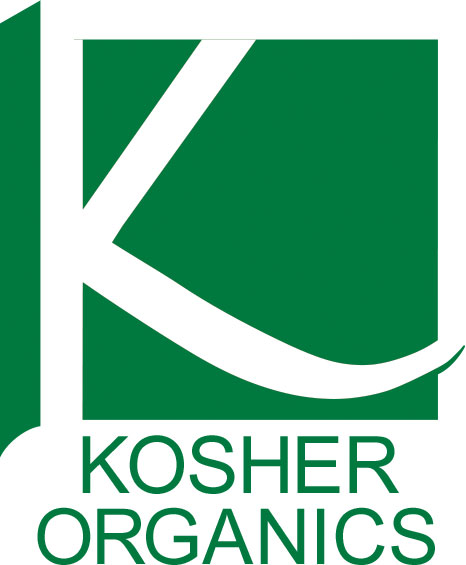What is the Definition of Kosher?
“Kosher” is a Hebrew word that comes from the Hebrew root Kaf-Shin-Reish which means “fit-proper or connect”. When applied to food the term indicates that an item is fit for consumption according to Jewish law.
The kosher laws are complex and extensive. The main principles of the kosher laws are laid out in the Torah-or Teaching (The five Books of Moses) and are classified as “statutes”.
Through the years the kosher symbol has become internationally recognized by many people as a guarantee that their dietary requirements have been met.
People with many health concerns, such as lactose intolerance; and many health conscious people such as vegetarians; look to kosher food for variety of options that exclude meat, poultry, fish and dairy.
Three categories of Kosher Food and the basic Kosher Laws they follow.
1. MEAT: The basic rules about which animals and fowl are kosher are set out in Leviticus chapter 11.
- Red Meat: As for red Meat, the animals must have cloven hooves and chew the cud-such as a cow, goat, deer, bison, or lamb. Any land animal that does not have both of these qualities is strictly prohibited. Some examples of non-kosher land mammals are pigs, horses, rabbits and camels.
- Fowl: The Torah also restricts the consumption of certain fowl. Among the forbidden birds of prey or scavengers. Some examples of forbidden birds are ostriches, owls and vultures. The mainstream kosher organizations only accept as kosher the chicken, turkey, goose, and certain ducks.
2. DAIRY: Milk and milk products (cheese, cream, butter, etc.) of a kosher animal are kosher Dairy. Rabbinic law requires that there be supervision during the milking process to ensure that the source of the milk is from a kosher animal. Milk that is observed by a rabbinical source from the time of milking to the time of bottling is referred to as “Cholov Israel”.
3. PAREVE (or PARVE): Vegetables, fruits, and grains: Foods which contain neither meat nor dairy ingredients are called “Pareve”. All fruits, grains, and vegetables in their natural state are kosher Pareve. The Torah is very explicit in its ban on insects. Fruit and vegetables liable to be infested with them have to be thoroughly scrutinized and cleansed. Certain kosher grains and legumes may not be used during the holiday of Passover.
• Meat and Milk: Central to maintaining kosher lifestyles is the separations of meat from milk. The prohibitions against mixing them are very strict.
• Fish and Meat: Another rule is not to eat fish and meat together. You may eat it one after the other, but not at the same time. This statute is from the Rabbis, advocates of a healthy lifestyle, who believe it physically harmful.
• Shechita: Kosher meat and poultry must be prepared by the method of shechitah- from the Hebrew root Shin-Cheit-Tav-meaning to destroy, a swift cut by razor-sharp knife -which is believed to be the most painless means of slaughtering the animal.
• Glatt: After shechitah, the animal must undergo a thorough inspection (bedika) to check if there are many blemishes which according to Jewish law render it “not kosher”. The lungs of cattle and intestines of chickens are always checked. This is where the term “glatt”-smooth-kosher” comes in.
• Nikkur: Before the meat reaches the shop counter; there is one more process to undergo-nikkur. This entails the removal of a number of veins, nerves and forbidden fats.
• Melicha-Salting: to be fit for kosher use, the meat must be drained of any remaining blood-the consumption of which is strictly forbidden by the Torah. That is why it must be soaked and salted before food preparation. The liver since it is full of blood has to be roasted by a naked flame.
• Eggs: Because of the strictures against blood, it is customary to check eggs that have been opened before cooking, so as to reject any with blood spots. Eggs of forbidden birds may not be consumed.
• Margarines: Only margarine under rabbinical supervision can be used. The manufacturers of “vegetarian” margarine cannot always guarantee that the source of their emulsifier is vegetable.
• Cheese: All cheese must be rabbinic certified. This is because the curding agent, the rennet, is often derived from an animal source-usually a calf’s stomach. Vegetarian cheeses, even when the rennet comes from herbs, cannot be used, unless they have rabbinic seal.
• Wine: Wine and grape juice must be approved by a rabbinical source. Among other requirements this is because non-kosher ingredients may occur in the manufacture of non-kosher wines.
• Bread and Biscuits: The Rabbis recommend consuming kosher bread. Bread usually contains fat, which may be of animal (or unknown) origin, or of non-kosher fat being used to grease the baking-tins; such fat need not appear on the list of ingredients.

